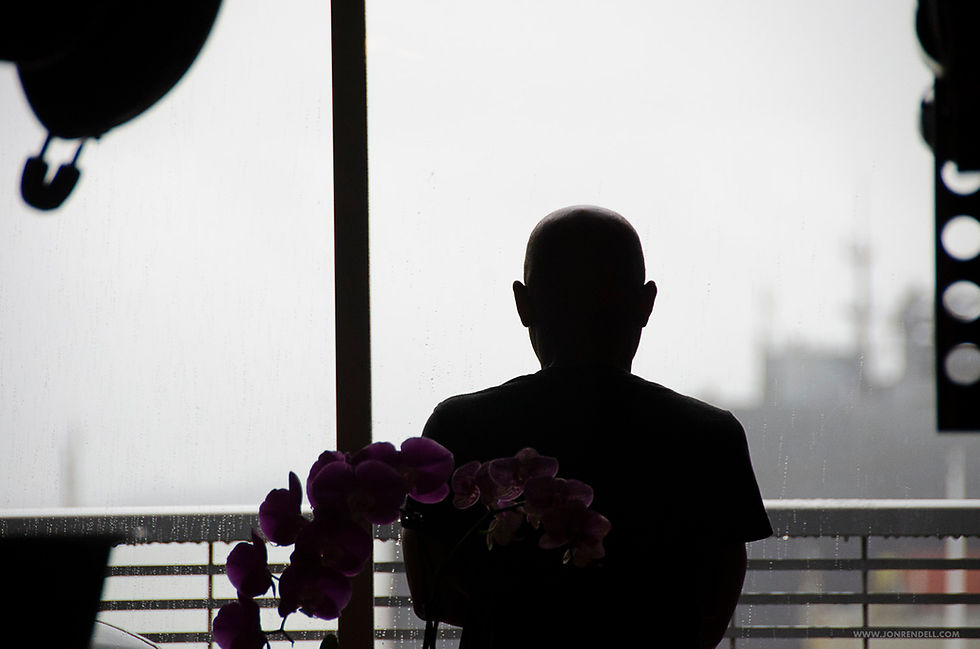The War on Empathy: Why We Struggle to Care?
- Oct 22, 2025
- 3 min read

We live in an age where connection has never been easier, and yet, we seem to care less about each other than ever before. Human suffering is just a swipe away. News of global suffering reaches us in seconds, but our compassion seems to lag behind. We scroll past tragedies with a sigh, post a hashtag and move on. A bombing, a flood, a mother weeping over her child, communities being destroyed, all passing by on our screens before we scroll to the next post about dinner or celebrity gossip.
Every day, I feel more disconnected than ever. The daily flood of tragedies on our screens has made compassion feel exhausting, even dangerous. Somewhere along the way, empathy went from being a celebrated human trait to a political liability, dismissed as soft or naïve. It's not that people don't care; it's that we have grown bitter. Today, empathy feels like it's on life support. It's not by accident, it's the result of cultural exhaustion, digital overload, and living in a world that rewards outrage over understanding. We see everything, yet somehow, we feel less. There was a time when empathy was instinctive, but now it feels optional. The world hasn't lost its heart it has just grown weary from overuse. We are fighting a quiet, but critical battle - The War on Empathy.
Empathy was once humanity’s greatest strength, the invisible thread connecting one heart to another. But in the digital age, that thread is fraying. Constant exposure to tragedy, political division, and self-centred culture has turned compassion into exhaustion. Outrage is easier than understanding, and indifference feels safer than feeling too much. What we face today isn’t just a lack of caring, it’s a systematic erosion of empathy, waged by noise, numbness, and political distraction.
It’s easy to believe the world has lost its heart, but empathy isn’t gone, it’s just under attack. Every day, we’re bombarded with images and headlines that ask us to care until we can’t anymore. Yet, despite the exhaustion, kindness still breaks through. During my daily strolls I often see a stranger paying for someone’s meal, volunteers comforting survivors, kind people helping elderly men and women to cross busy intersections, and people speaking up for those without a voice. Empathy may be wounded, but it’s not dead. The real war isn’t about whether we still care, it's struggling to remember how to care about others.
Often, I feel like I'm living in a cult of individualism. We’ve been taught, in subtle and loud ways, to prioritize ourselves above all else. Modern culture celebrates the grind, the hustle, and the personal brand. Empathy doesn’t trend; ambition does. “Look out for number one” has replaced “love thy neighbour.” The result? We live in a society where success is measured by what you gain, not what you give, and in that kind of world, empathy looks like weakness.
Empathy and sympathy often get confused. Sympathy says, “I feel sorry for you.” Empathy says, “I feel with you.” The first keeps distance; the second closes it. But to truly feel with someone requires vulnerability, and that’s something many people fear. It means opening the door to discomfort and to shared pain. So instead, we perform empathy online, posting, liking, or sharing, without having to actually feel it. It’s empathy’s empty cousin: performative caring that costs nothing and changes little.
When empathy fades, division thrives. We stop seeing people as people and start labelling them as “others.” Race, politics, class, or gender lines deepen when compassion disappears. The result is cruelty disguised as opinion, indifference packaged as strength. Without empathy, injustice grows roots, and humanity becomes background noise.
But here’s the truth: empathy isn’t extinct. It’s just buried under exhaustion, fear, and distraction. And like any muscle, it can be strengthened again. It starts small with presence, with listening, with choosing to look instead of turning away. It grows when we volunteer, when we help without expecting recognition, when we tell stories that remind us of what we share, not just what divides us. Lately, I have noticed that art can spark it. Conversations can deepen it. Even silence, the act of truly hearing someone can restore it. Empathy is not grand; it’s human. And it begins with being aware of your surroundings.
Empathy is not a luxury it’s a survival skill. The war on empathy is real, but it isn’t unwinnable. Every time we choose understanding over judgment, compassion over convenience, we reclaim a little more of our humanity. The world doesn’t need us to care about everything, it just needs us to care genuinely, one person, one story, one act at a time. Because when empathy returns, so does hope, and hope, no matter how fragile, has always been our strongest weapon. The world doesn’t need us to care about everything, it just needs us to care genuinely, one person at a time.








Comments